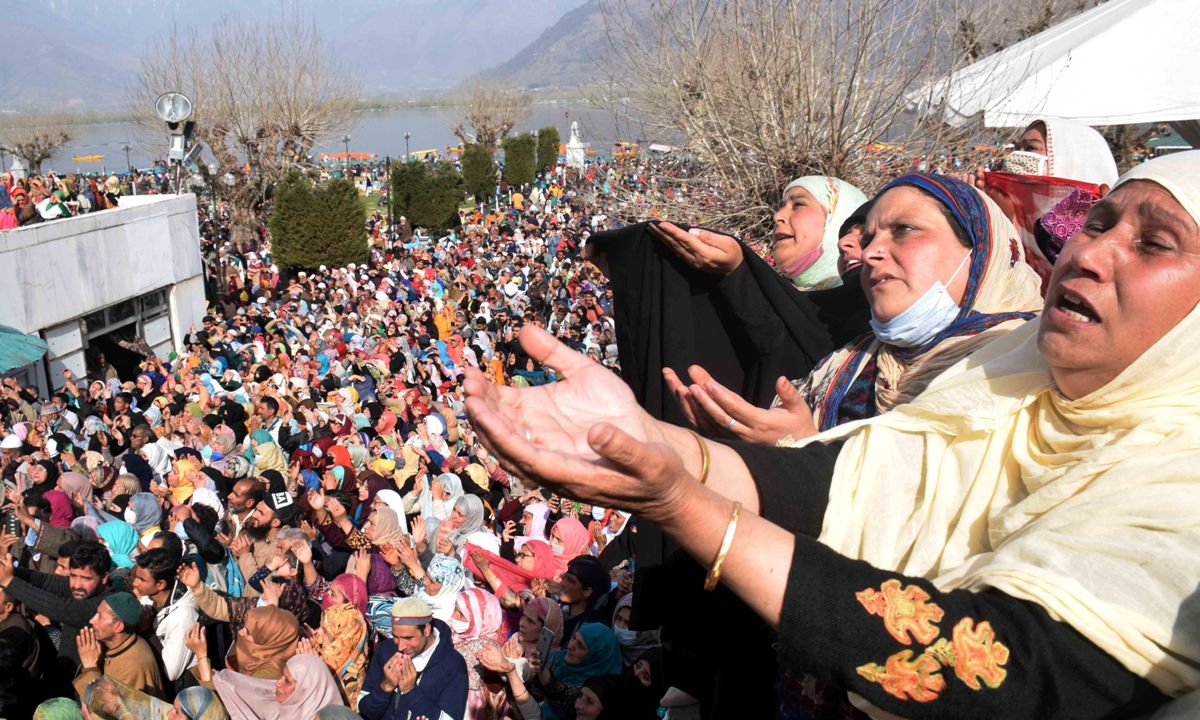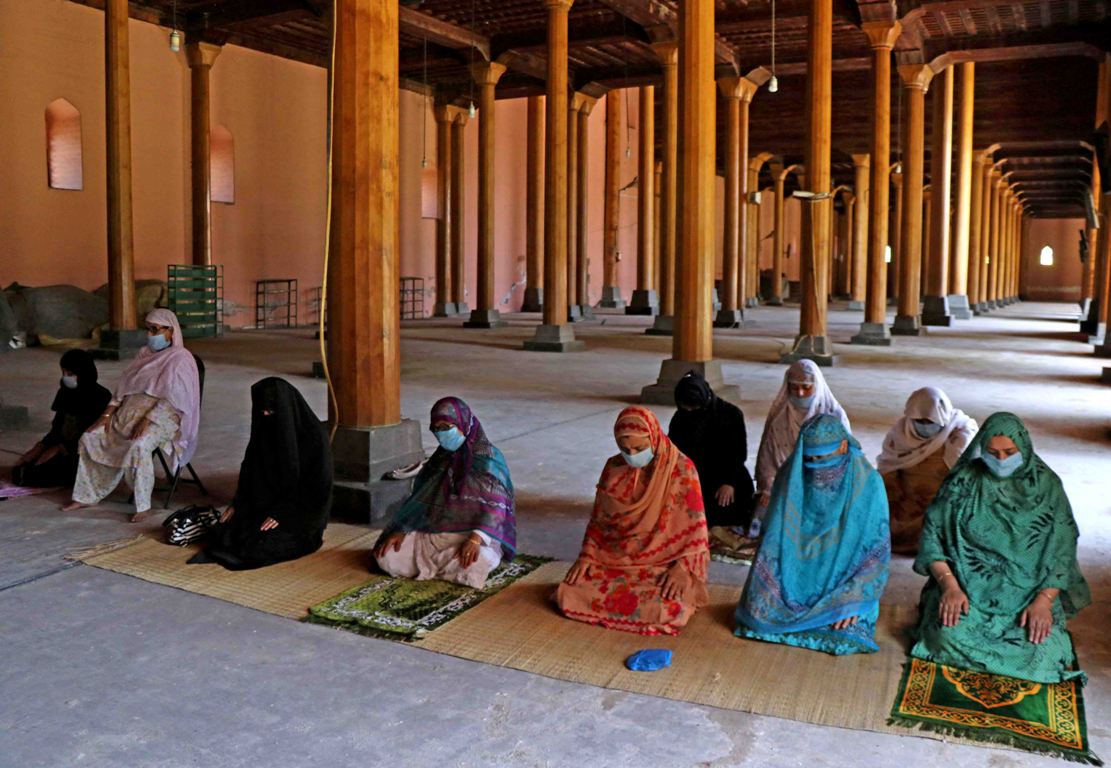It is a mixed bag of surprises and challenges when it comes to inheritance in the case of women in Kashmir. Syed Shadab Ali Gillani met a number of women to understand how the institution of inheritance works at the grassroots
Shameema, 42, has chosen not to claim her share in her father’s property for the past 42 years. She believes that maintaining a good relationship with her brothers is more important. “I have to keep my relationship with my brothers alive and happy, and that is all that matters,” She said, insisting that this decision was not altered even by the continued insistence of her brothers’ attempts that she take her share.
This is a trend in Kashmir. A vast section of the women after settling in their lives avoid staking any claim over the inheritance. They are willing to forgo their rightful share for a harmonious relationship with their brothers.
Exceptions do exist. Sayida passed away around seven years ago. Her husband and their children are seeking a share in the ancestral house, a piece of land and whatever the dead lady’s father left behind.
“The husband and the sons both visited the house, claiming their rights to occupy it,” advocate Omaira Farooq, who is handling the case, in the District Court Srinagar, said. “This became the basis of contention between the two parties.”
In yet another case handled by a different advocate, a dispute has dragged on for over sixty years with no signs of progress. “A sister filed a lawsuit against her brothers seeking her share, but no progress has been made thus far. None of the parties is willing to compromise, although the property in question is merely a three-roomed house,” the advocate reveals.
Mutual Settlements
While many disputes follow a legal course, there are instances where parties reach out-of-court settlements.
In 2015, Sara sent a message to her younger brother, a doctor, requesting a bedroom with an attached bathroom as her share in his property. The brother, taken aback, struggled to comprehend the demand. “I had already offered her a piece of land, which she accepted. Now she wants a share in my house as well,” expressed the devastated brother. “I have four children to provide for. How can I meet their needs and fulfil my sister’s demand?”
In an attempt to resolve the matter outside the court, the brother eventually paid an amount of Rs 20 lakh to his sister, hoping it would satisfy her and prevent further demands.
Denied Inheritance
Instances, where women are wrongfully denied their inheritance, are not uncommon. In the case of Mahmooda, 78, her brother deceitfully obtained her thumb impression. It was through a distant relative that she discovered her brother’s betrayal, leaving her utterly shocked.

“One of my distant cousins approached me and asked Tche chutthe hisse trovmut? (Have you given up your share?),” recounted Mahmooda. Initially, she didn’t understand the meaning behind the question. However, when she later shared the incident with her husband, he embarked on a quest to uncover the truth.
Mahmooda continued, tears welling up as she wiped them away, “When my husband returned, he revealed that I had unwittingly thumb-stamped the property documents. I had placed so much trust in my brother; I never anticipated he would betray me in such a manner.” Since then, Mahmooda has not spoken to her brother. “It is not about the property; it is about the deceit. I cannot forget it until my last breath.”
Similar cases of deceit and betrayal abound. Mohammad Rafiq from South Kashmir shared his mother’s account of a case in which a brother went to court and falsely claimed his sister’s death while she was still alive, all to deprive her of her rightful share. “I have heard of many such cases of this nature,” Rafiq added. “In one incident, a brother even asked his cousin to impersonate his sister in court and sign documents relinquishing her property share.”
Legal Perspective
Advocate Irshad Ahmad Masoom, who practices at the High Court Srinagar, recounted several cases he has handled during his career. In one instance, he discussed a woman who steadfastly refused to sell her share of her late husband’s property, despite continuous pressure from her daughters. The mother remained resolute. “Her argument was simple – I will not sell my share. It is my sole source of independence and security. My late husband left it for me. Why would I sell it? My daughters can sell it after my death,” said Irshad.
The woman, having lost her husband and with all her five daughters married, found herself living alone. She did not want to dispose off her share and rely on her daughter and son-in-law for her livelihood. There were no options.
In another case, Sara willingly gave up her share in the property for the family of her deceased brother. “I have two brothers, and I am the only sister,” a confident and loving 59-year-old Sara explained. “When my younger brother passed away, leaving behind his widow and three children, my elder brother asked me to claim my share of the property. Without hesitation, I informed him that I would give my share to my younger brother’s family. Almost immediately I signed the necessary documents to ensure they wouldn’t suffer.”
Numerous individuals like Sara selflessly relinquish their share and property for the welfare of their brothers.
For Saima, a 36-year-old woman, one phone call from her brother brought about a significant change in her life. “When my brother called and informed me that they were planning to sell their house and give me my share, I rushed to them immediately to prevent the sale,” Saima said. “I knew my marriage was not going to work, so I intervened. A year later, I got divorced and began living with them.”
Usually, this is the main reason why women are willingly giving up their rights. They fear that in case they face any crisis in conjugal life, they should have the doors of her brothers open.
In one case, five brothers had one sister. They decided to give her an orchard, which she started to take care of. Within days, she felt a change in the attitude of her sister-in-law, which irked her. Instead of seeking their inheritance from their parents, her sisters-in-law started talking about their relatives accepting her share. Fearing the deterioration of her relations, she stopped cultivating it. Even though the brothers were supportive and did not touch for three years, they eventually had to intervene and take it over.
The Personal Law
While explaining the provisions of the Muslim Personal Law regarding inheritance, she emphasised that the law clearly states that a daughter is entitled to a share of her father’s property, which may vary in size but is allocated. “In the Muslim Personal Law, another person cannot claim their share until the property owner is alive,” Advocate Omaira Farooq said. She mentioned that property disputes can sometimes endure for more than half a century.
Asserting that inheritance takes effect upon the death of the property owner, the lawyer said: “The property is divided equally among the sons, while the daughter receives one-third of the property. The distribution of shares varies in different circumstances, such as for a mother, a wife, and so on.”
Regarding specific scenarios, Omaira explained, “A daughter will inherit a one-third share of her father’s property, while a mother whose son has passed away will inherit one-fourth share from her son’s property. In the case of a woman who has lost her husband, she will receive a one-eighth share from her husband’s property.”
She also discussed the law of reversion, which applies when a man has no son. However, she noted that in the case of a mother’s property, a daughter is entitled to an equal share.
Islamic Perspective
According to Islamic scriptures, if a daughter inherits – whether from her mother or her father – her share of the inheritance may vary according to the situation:

If the daughter is an only child, i.e., she has no brothers or sisters (i.e., heirs who are descendants), then she has half of the legacy of the deceased. If there is more than one daughter – two or more – and the deceased has no male children, then their share is two-thirds. These are principles laid by the Quran.
If other male heirs are descendants of the deceased (one or more), then they are to be given the remainder after each person who is entitled to a share has been given that share. Her share is equal to one-half of her brother’s share, whether they are two or whether the children include both males and females. The male takes a share equal to that of two females.
Denying The Rights
These are the shares which have been decreed by Allah. So, it is not permissible for anyone to change any part of them, or to deprive an heir, or to bring in anyone who is not an heir, or to deprive an heir of any part of his inheritance or to give him more than the share allotted to him by Shari`ah.
Islamic scholar Muhammad Abdullah Nadvi highlights that the Qur’an mentions a woman’s entitlement to her share in the property, whether she is a daughter, sister, mother, or wife. “If the men in the family deny her this right or prevent her from claiming it, they are considered oppressors, as they are depriving the woman of her rightful share bestowed upon her by the religion,” Nadvi affirms.
In Islam, it is not permissible for anyone to deprive a woman of her inheritance or to use tricks to do so because Allah, may He be glorified, has allocated a share of inheritance to her in His holy Book and in the Sunnah of His Messenger (blessings and peace of Allah be upon him). And the Muslim scholars unanimously agreed on that.
(All names of the women, excepting the lawyers, have been changed to protect their identity.)


